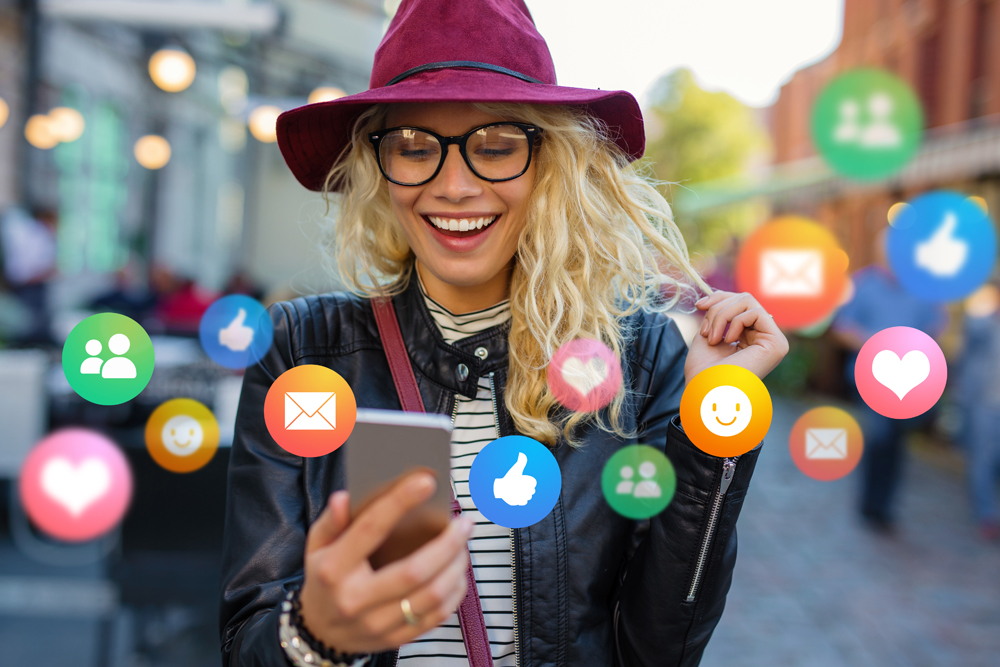
According to reports, 89% of companies acknowledge excellent customer service as critical for retention, with a 60-70% chance of selling to an existing customer. 59% of American customers confess that once they've become loyal to a brand, they are more likely do business with them again. 78% of customers look for fair pricing, and over half (53%) say discounts and loyalty points make them stay with a brand longer.
Marketers are constantly emphasizing that long-term customer relationships are more valuable than short-term gains. Brands are realizing that attracting new customers isn’t enough anymore; retaining them is equally vital. Loyalty programs and strategies help businesses make a difference and encourage repeat business. The role of loyalty in the U.S. business ecosystem has grown to encompass not just repeat purchases but also customer engagement, brand advocacy, and alignment with consumer values. This multifaceted approach is crucial for businesses to thrive in the modern, dynamic market environment.
Modern customers want more than just transactional benefits. They seek personalized experiences, ethical business practices, and brands that echo their values. Loyalty programs are evolving to offer more than just discounts and rewards. The integration of technology in loyalty programs has enabled businesses to gather and analyze customer data more effectively. This data-driven approach helps in tailoring personalized experiences, predicting consumer behavior, and creating targeted marketing strategies. Satisfied loyal customers are also seeking to advocate for a brand through social media and word-of-mouth, effectively becoming brand ambassadors.
Businesses are forming partnerships across industries to offer more comprehensive rewards, expanding the scope and appeal of their loyalty programs.
Here are some top future trends shaping the Loyalty industry:
Hyper-personalization in loyalty programs marks a transformative shift in how companies engage with their customers, leveraging data analytics and AI (Artificial Intelligence) to offer highly individualized experiences. This approach goes beyond traditional segmentation, using real-time data and advanced algorithms to create unique interactions for each customer. Starbucks' loyalty program stands as a prime example of hyper-personalization. They leverage their mobile app and rewards program to collect large data on customer preferences, from drink choices to typical purchase times. Using this data, the company employs AI algorithms to send personalized offers and recommendations to customers. For instance, a customer who regularly orders a latte may receive a discount on a similar beverage, or an invitation to try a new latte flavor. Starbucks also personalizes the timing of these offers, aligning them with the customer's usual purchase time to maximize relevance and engagement. This strategy has proven successful, with Starbucks reporting significant increases in customer engagement and sales tied to its loyalty program. The program's success demonstrates the effectiveness of hyper-personalization in fostering customer loyalty and increasing revenue, serving as a model for other companies looking to enhance their loyalty strategies.
Integrating gamification and interactive elements into loyalty programs has become a powerful strategy to boost customer engagement. This approach turns mundane transactions into fun, engaging experiences, encouraging repeat interactions and deeper brand loyalty. By adding game-like elements such as points, levels, and rewards for specific actions, companies make participation in their loyalty programs more compelling and enjoyable. A notable example of this strategy in action is Domino's Pizza in the United States. Their "Piece of the Pie Rewards" program exemplifies gamification in a loyalty context. Customers earn points for each order, which can be redeemed for free pizza. What sets Domino's apart is their innovative use of technology, including an app feature that rewards points for pizzas bought from any source, not just Domino's. Users simply scan their pizza, and the app, using AI to recognize the pizza, allocates points. This unique, interactive element not only incentivizes repeat purchases but also engages customers in a novel way, fostering a fun and memorable brand experience. Domino's has reported increased customer participation and engagement since the introduction of these gamified elements, highlighting the effectiveness of this approach in loyalty programs.
Focusing on mobile platforms for loyalty programs is a strategic move in today’s digital-first world. Mobile devices are integral to consumers' daily lives, providing a direct and constant channel for engagement. By leveraging mobile platforms, companies can offer convenient, on-the-go access to their loyalty programs, enhancing user experience and interaction. This approach allows for real-time notifications, personalized offers, and easier points tracking and redemption, all at the user's fingertips. Moreover, mobile apps enable the integration of advanced features like geolocation, augmented reality, and seamless payment options, further enriching the customer experience and driving deeper engagement and loyalty.
Loyalty programs are increasingly following sustainable practices and social responsibility, reflecting a growing consumer preference for eco-friendly and ethically conscious brands. This shift involves rewarding customers not just for purchases but also for engaging in sustainable behaviors or supporting social causes. A prime example of this trend is Patagonia, a U.S. outdoor clothing brand known for its environmental activism. Patagonia's loyalty program aligns with its mission of responsible consumerism. Instead of traditional point systems, it rewards customers for participating in environmental initiatives, like attending conservation events or contributing to recycling programs. Customers earn discounts or exclusive access to limited-edition products, incentivizing participation in eco-friendly activities. This approach has strengthened Patagonia's brand loyalty, resonating particularly with environmentally conscious consumers. By aligning its loyalty program with its core values of sustainability and social responsibility, Patagonia not only fosters customer loyalty but also amplifies its impact on environmental advocacy, setting a benchmark for other brands in integrating ethical practices into business strategies.
Omnichannel loyalty experiences represent a holistic approach to customer engagement, seamlessly integrating multiple channels — online, in-store, mobile, and social media — to provide a unified brand experience. This strategy acknowledges that modern consumers interact with brands across various platforms and seeks to offer a consistent, personalized journey across all touchpoints. By leveraging data analytics, businesses can track customer behaviors and preferences across channels, enabling them to tailor rewards, offers, and interactions to individual needs. This interconnected approach not only enhances customer convenience and satisfaction but also fosters deeper loyalty, as customers enjoy a consistent, high-quality experience no matter how or where they engage with the brand.
Closing note
Staying ahead in the loyalty industry is vital for modern marketers, as it demands constant innovation and adaptability. With evolving customer expectations and technological advancements, marketers must continually refine their strategies to offer relevant, personalized experiences. This does not only retain customer interest but also differentiates the brand in a competitive ecosystem. ImmplyCloud with its comprehensive suits of tech services, DevOps expertise and personalized solutions drive digital transformation for businesses.
of our story
hr@annexcloud.com
















